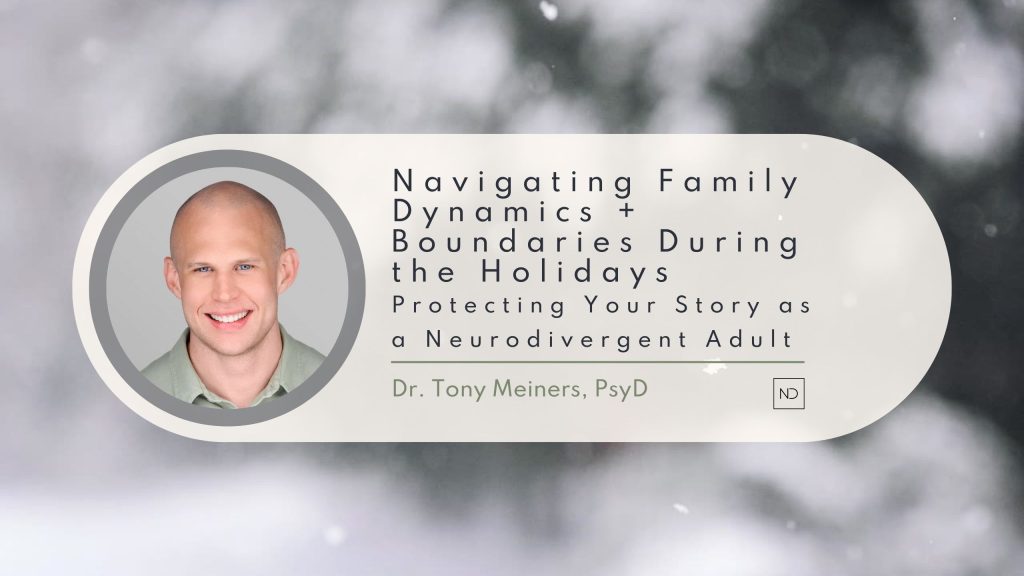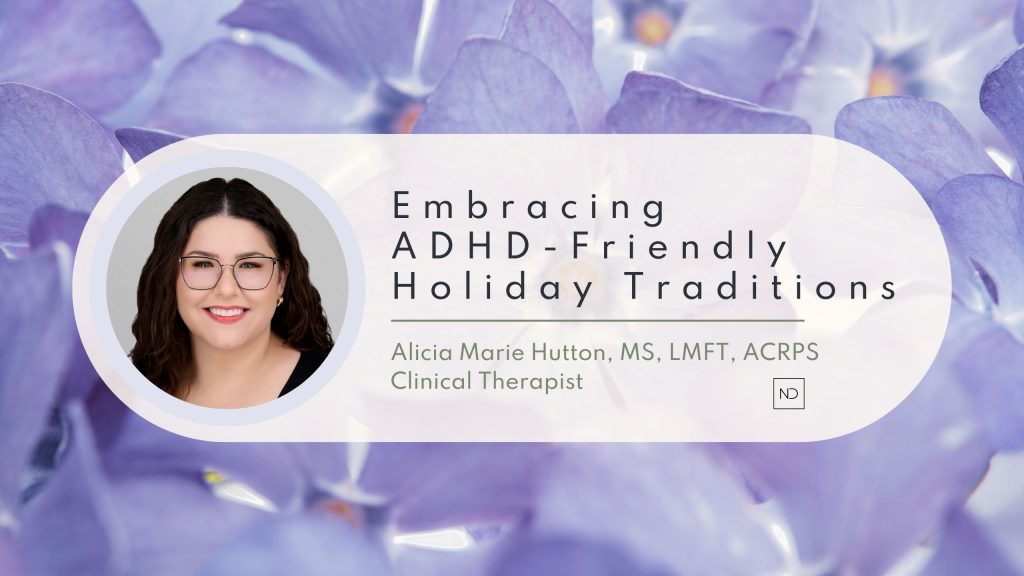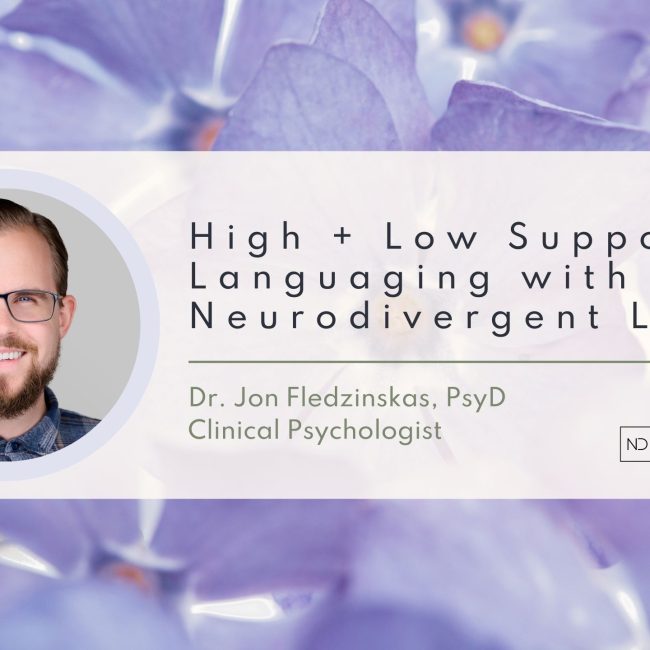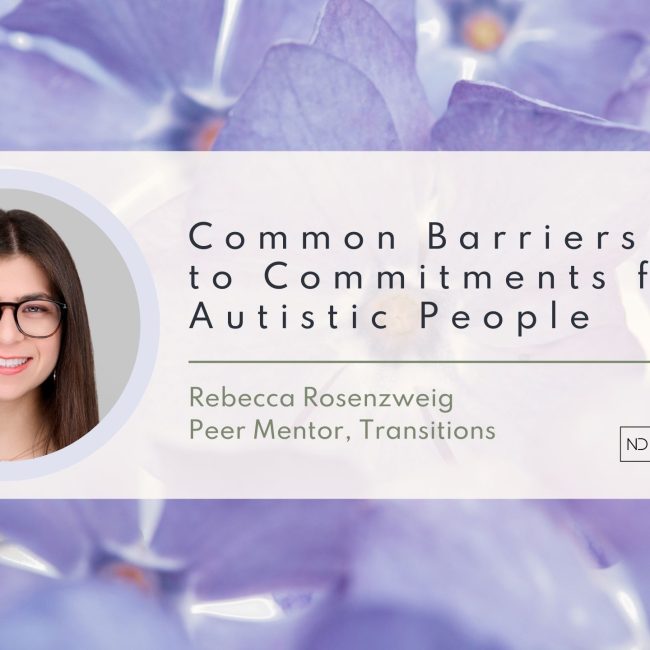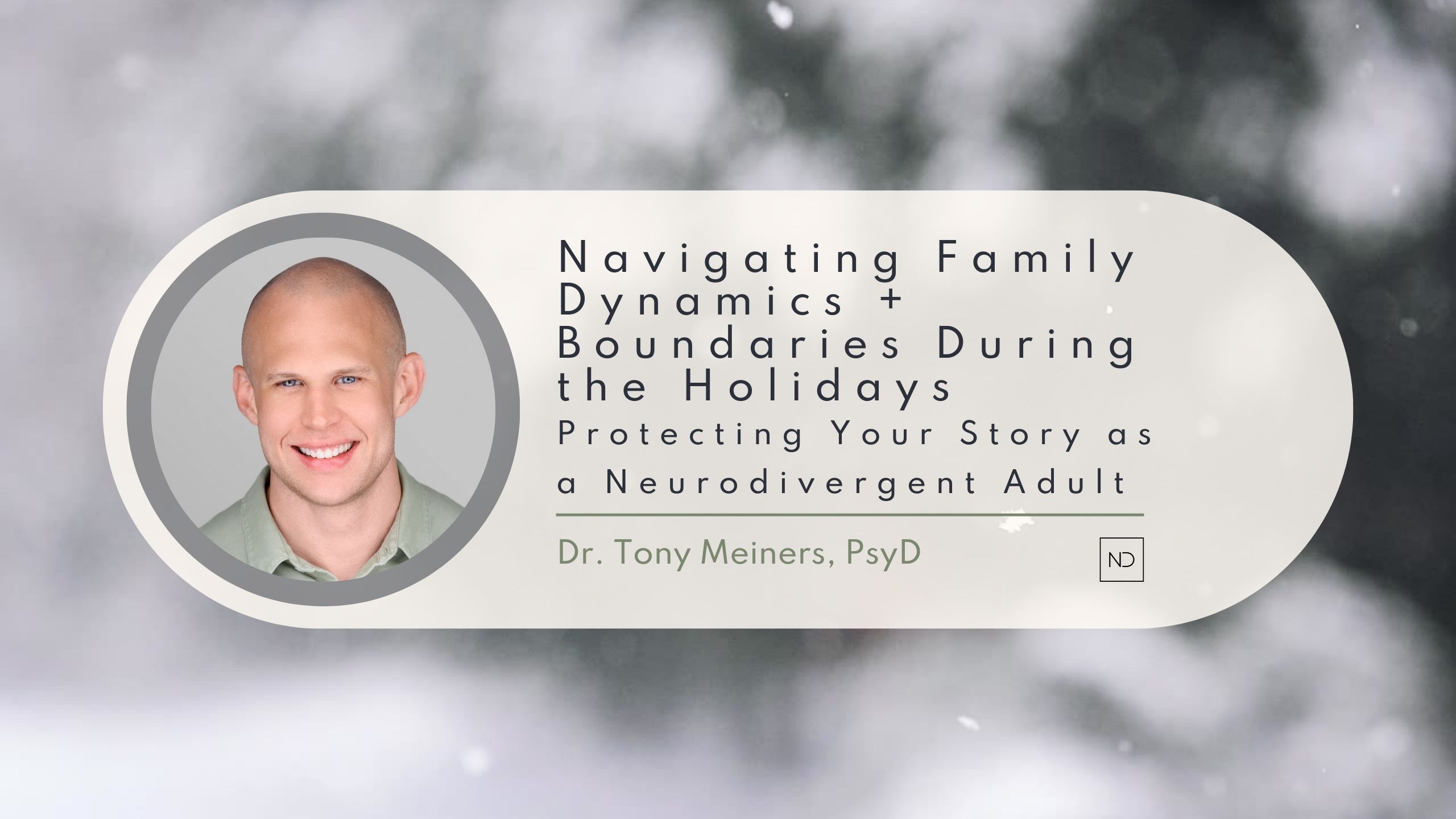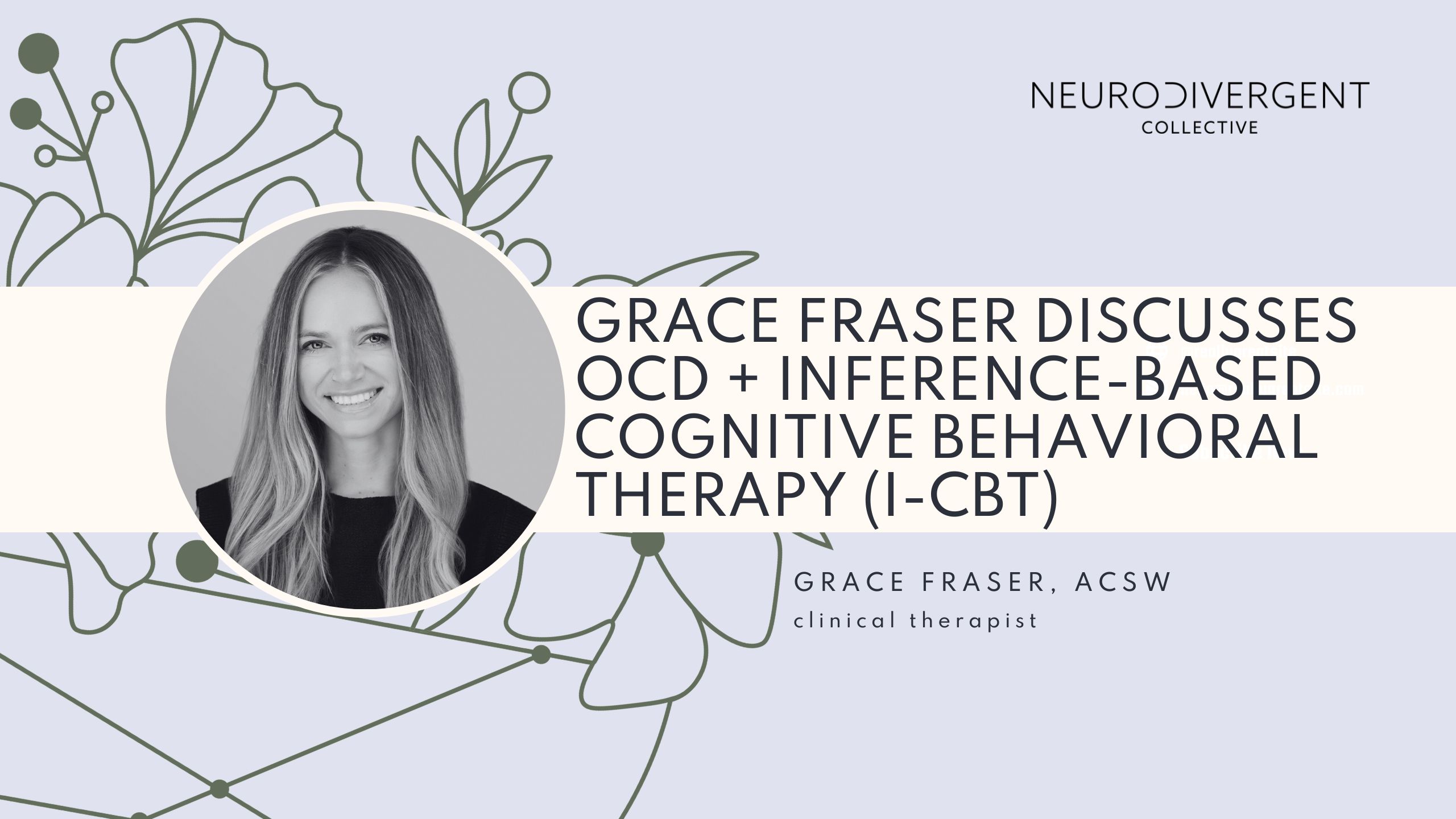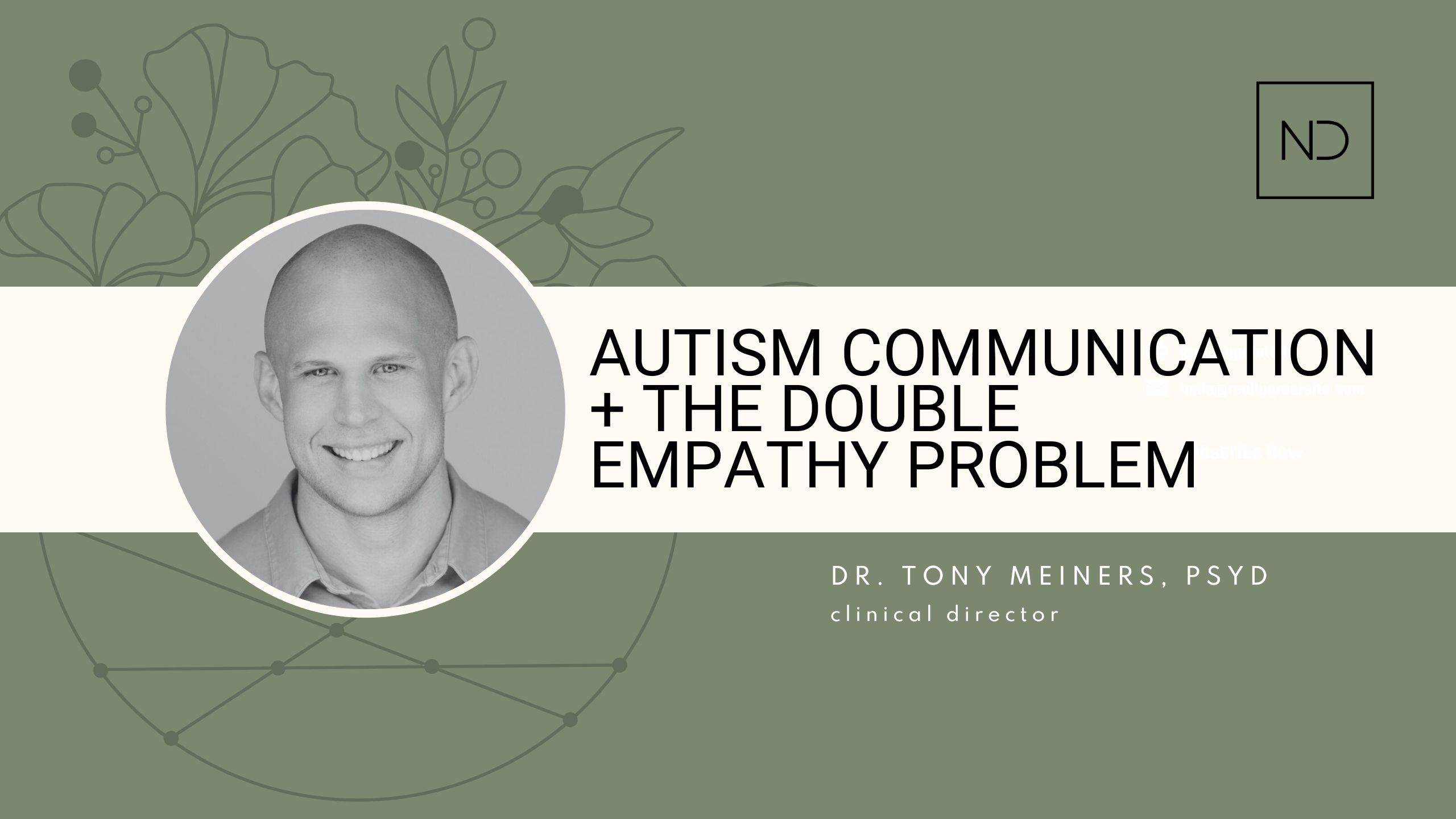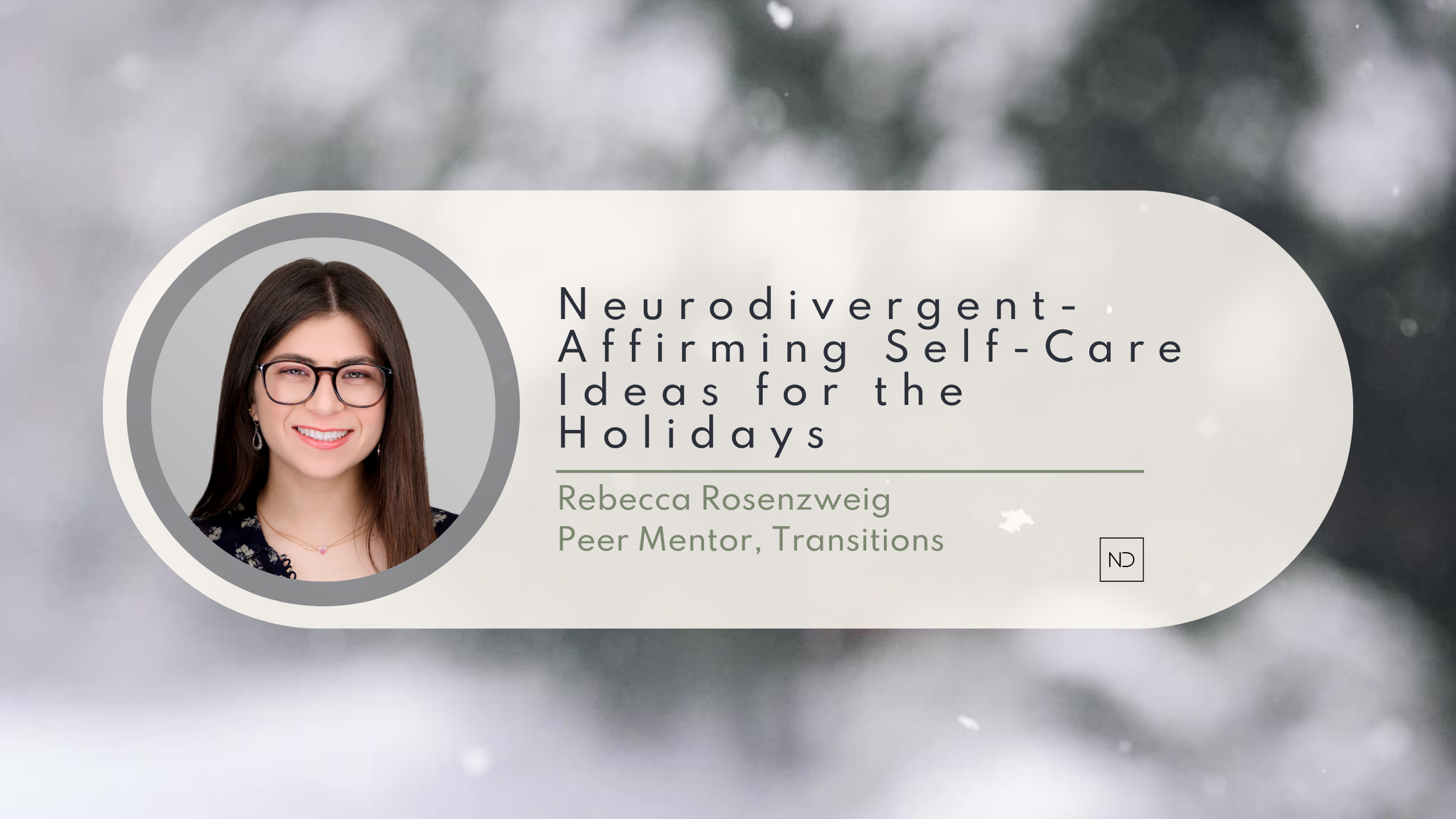
Neurodivergent-Affirming Self-Care Ideas for the Holidays
Written by: Rebecca Rosenzweig, BA :: Transitions Program Peer Mentor
Neurodivergent-affirming self-care ideas for the holidays:
The winter holidays can bring a lot of different thoughts and feelings as we prepare for the changes in our routines. Here are some strategies to help navigate the winter holidays as neurodivergent humans:
Have a sensory plan
We tend to have sensitive sensory systems! For us to thrive (or get through a holiday party) we need to be able to regulate our sensory systems. Consider taking some time to think about your holiday schedule and what the sensory environment will be, so you can plan accordingly.
Questions to ask yourself:
Example: Holiday party at Aunt Sally’s house
- What sensory environment can I expect? (Sounds, smells, tastes, etc)
- What sensory factors in that environment are comfortable for me? What sensory factors are uncomfortable for me?
- What tools can I bring to help myself regulate? (e.g noise cancelling headphones, a fidget, a scented item, change of shoes, etc)
- Where can I have a break if I need one?
You can do this for each planned activity!
Try to stick to your sleep routine
Sleep is important for our own self-regulation. This includes mental health, physical health, and caring for our sensory systems. When we have a break from our usual work or school routine, sometimes our sleep schedule changes. (e.g staying up later and sleeping in, waking up super early for a flight, etc). Making space for some components of your normal sleep routine can help your body prepare to sleep and stay regulated.
Questions to ask yourself:
- What activities are in my current sleeping routine? :: Example: Brush my teeth and wash my face, read a book in bed, watch a TV episode, etc.
- If I am traveling, what tools can I bring with me to keep up with part of my routine? :: Example: the book I am reading, a laptop to continue my show, etc.
- What activities do I usually do when I wake up in the morning? :: Example: Do I brush my teeth right away or do I have breakfast first? Do I prepare coffee a certain way?
- If I am traveling, what tools can I bring with me to keep up with parts of my routine? :: Example: Granola bars that I like, my favorite tea bags, etc.
Make your own schedule
For some people, winter holiday time means a lot of different activities and gatherings. As neurodivergent people raised in a neurotypical society, many of us have gotten used to masking our wants and needs in order to fit in.
Just because you are “expected to go” or “you go every year” does not mean you have to continue on this path. As you learn more information about your neurodivergence, you may choose to attend in a different way, or realize that certain activities are just not a good fit for you. It is okay to make a different choice!
Attending in a different way may look like:
- Having your own transportation! Then, you can be free to come and go as you please in order to respect your own sensory system and social battery.
- Bring a structured activity that you enjoy and invite others to participate :: Example: arrive with your favorite board game
- Bring sensory tools: fidgets, earplugs, etc.
- Take breaks: go on a walk, go to the bathroom, etc.
- Bring a friend! A “plus 1” does not have to be a date.
Other people may not understand, and that is okay.
We learn more about our neurodivergent selves every year! This new information may mean that we change how we take care of ourselves in order to thrive as neurodivergent humans. However, other people who love and care for us may not understand. They may wonder why you are “regressing” and say things like “but you were able to do this (activity) last year!”
Consider “justifying” vs “letting people in”
The term justify means “to show or prove to be right or reasonable”.
You do not have to explain yourself, or prove that you need to make different choices. You do not have to educate people when you are trying to take care of yourself if you do not want to. Instead you can say something like “even though I did it last year, I was not enjoying it like you may have believed. This year, I’d like to enjoy everything I am doing and so I am opting out of …”
However, when we share personal information about ourselves, it can sometimes help to form a stronger connection with someone else. This is sometimes called letting people in or “opening up.” Sharing about our neurodivergence and new knowledge about ourselves with someone can help both of you to feel more connected with each other. It can also be nice to have a buddy who can support you. How and if you decide to share is your choice.
Do you have a question?
Send us a message


